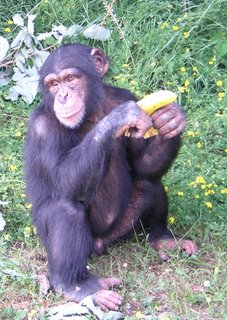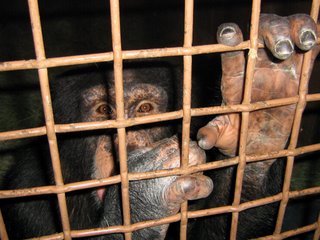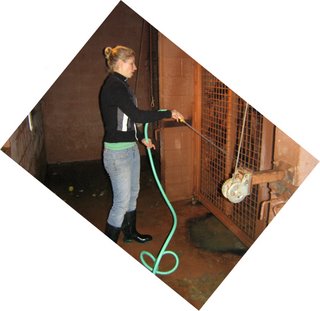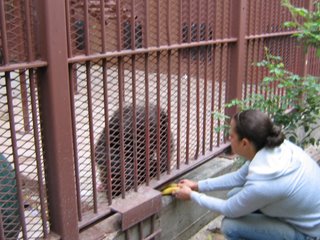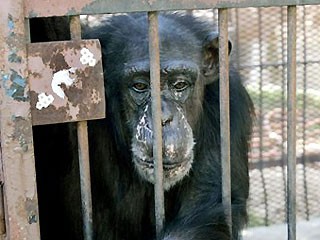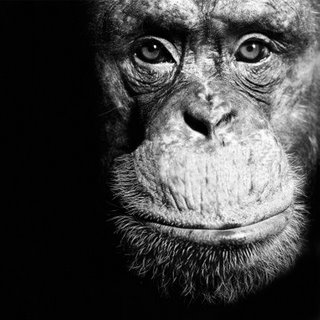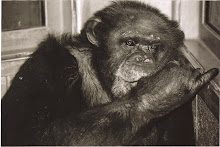Chimps are Finally Getting Proper Care
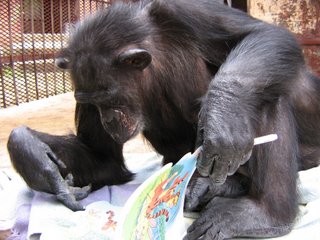
While it is probably true that the 3 caretakers who were employed by PPI prior to the Attorney General’s intervention “loved” the animals, they had less than 18 months combined experience caring for primates. The consulting veterinarian that was hired by PPI in June 2006, had not worked with primates for over 25 years. And while Wally Swett and Stephen Tello did have experience, their ideological commitments prevented them from acknowledging changing standards for how to appropriately care for chimpanzees.
For example, Sarah (above) is an enculturated chimpanzee who has been engaged with people in cognitive tasks for over 40 years. She was the first chimp to be taught a symbolic language. (Washoe was taught sign language just before Sarah, and then she and Lana, who lives in Atlanta, were taught symbolic languages). Sarah was the chimpanzee who led psychologists to ask the question “Do chimpanzees have a theory of mind?” Sarah’s intelligence has been the most comprehensively studied of all chimpanzees in cognitive research. Whether you approve of how Sarah has spent her life or not, the fact is that Sarah is highly dependent on regular human stimulation and enrichment. Sarah was denied this at PPI while Swett and then Tello were in charge – she had no transition period, had nothing to occupy her mind, and was literally being bored to death.
Now she has comfortable nesting material, books and magazines to look through, and she and all the chimps are getting proper care. In addition to Stephany and Klaree who have a combined 11 years experience caring for the former OSU primates, and Mel Richardson, D.V.M, with over 20 years of experience in the veterinary care of exotic animals, including chimpanzees and other primates, primate experts from around the country have flown to Texas to assist and others have been consulted to ensure that all the primates at PPI get the care they deserve.
Since the AG took over, every day all the primates at PPI are getting fresh produce, clean beddings, and forage. The neighbors who live closest to the facility are reporting that it is quieter than its ever been.
But, even though there are now experienced chimpanzee caregivers tending to the former OSU chimps and the other 65 chimps at PPI, it will still be in the best interest of all the chimpanzees to be moved to genuine sanctuaries. At true sanctuaries the facilities are safe for human and non-human primates alike; the highest standards of sanitation and animal management are followed; and trained caretakers, primate veterinarians, and experts on chimpanzee behavior are permanently available to oversee the chimps’ physical and psychological well-being in environments that are better suited for their life-long care.
